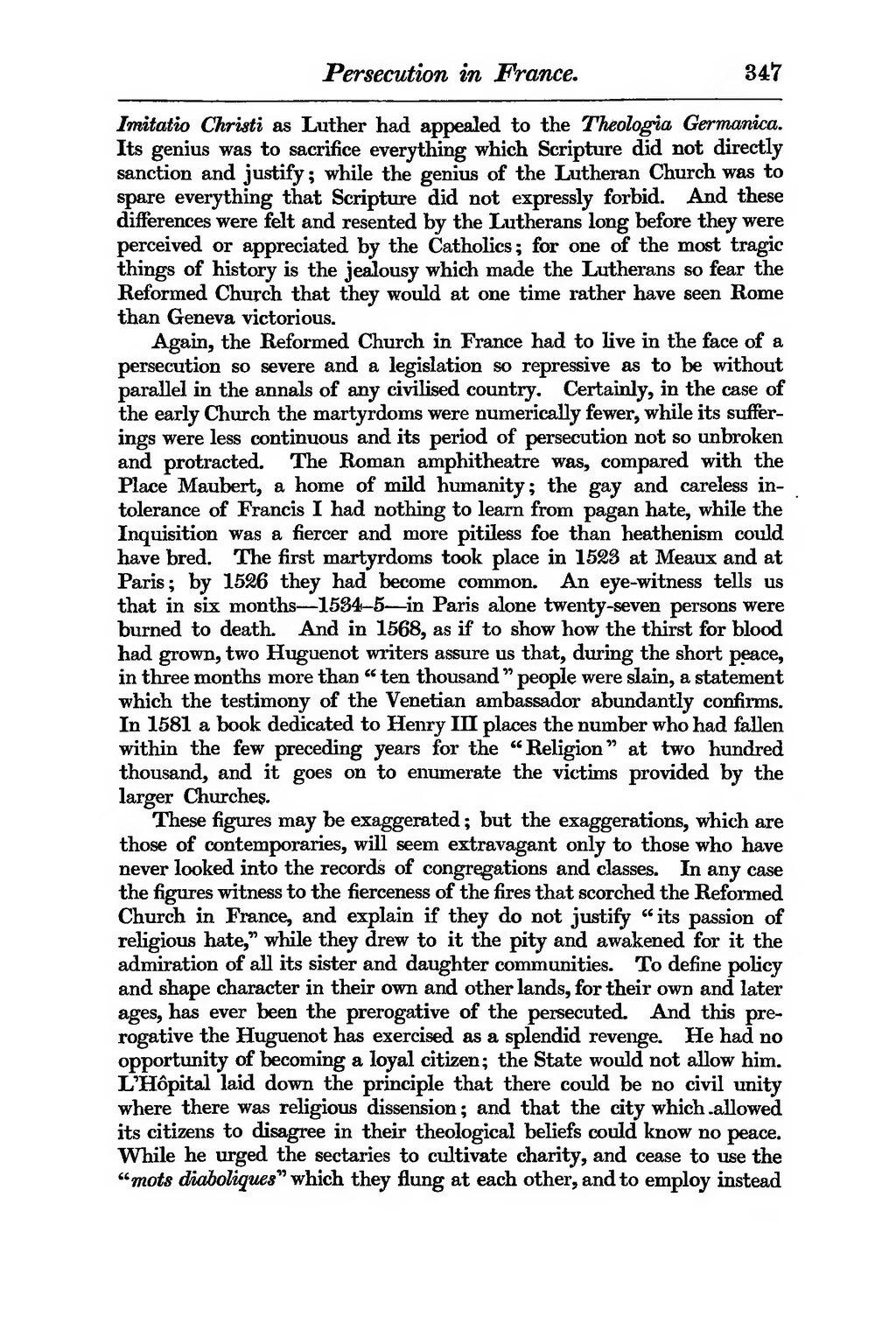Imitatio Christi as Luther had appealed to the Theologia Germanica. Its genius was to sacrifice everything which Scripture did not directly sanction and justify; while the genius of the Lutheran Church was to spare everything that Scripture did not expressly forbid. And these differences were felt and resented by the Lutherans long before they were perceived or appreciated by the Catholics; for one of the most tragic things of history is the jealousy which made the Lutherans so fear the Reformed Church that they would at one time rather have seen Rome than Geneva victorious.
Again, the Reformed Church in France had to live in the face of a persecution so severe and a legislation so repressive as to be without parallel in the annals of any civilised country. Certainly, in the case of the early Church the martyrdoms were numerically fewer, while its sufferings were less continuous and its period of persecution not so unbroken and protracted. The Roman amphitheatre was, compared with the Place Maubert, a home of mild humanity; the gay and careless intolerance of Francis I had nothing to learn from pagan hate, while the Inquisition was a fiercer and more pitiless foe than heathenism could have bred. The first martyrdoms took place in 1523 at Meaux and at Paris; by 1526 they had become common. An eye-witness tells us that in six months-1534-5-in Paris alone twenty-seven persons were burned to death. And in 1568, as if to show how the thirst for blood had grown, two Huguenot writers assure us that, during the short peace, in three months more than " ten thousand " people were slain, a statement which the testimony of the Venetian ambassador abundantly confirms. In 1581 a book dedicated to Henry III places the number who had fallen within the few preceding years for the "Religion1' at two hundred thousand, and it goes on to enumerate the victims provided by the larger Churches.
These figures may be exaggerated; but the exaggerations, which are those of contemporaries, will seem extravagant only to those who have never looked into the records of congregations and classes. In any case the figures witness to the fierceness of the fires that scorched the Reformed Church in France, and explain if they do not justify "its passion of religious hate," while they drew to it the pity and awakened for it the admiration of all its sister and daughter communities. To define policy and shape character in their own and other lands, for their own and later ages, has ever been the prerogative of the persecuted. And this prerogative the Huguenot has exercised as a splendid revenge. He had no opportunity of becoming a loyal citizen; the State would not allow him. L'Hôpital laid down the principle that there could be no civil unity where there was religious dissension; and that the city which allowed its citizens to disagree in their theological beliefs could know no peace. While he urged the sectaries to cultivate charity, and cease to use the "mots diaboliques" which they flung at each other, and to employ instead
